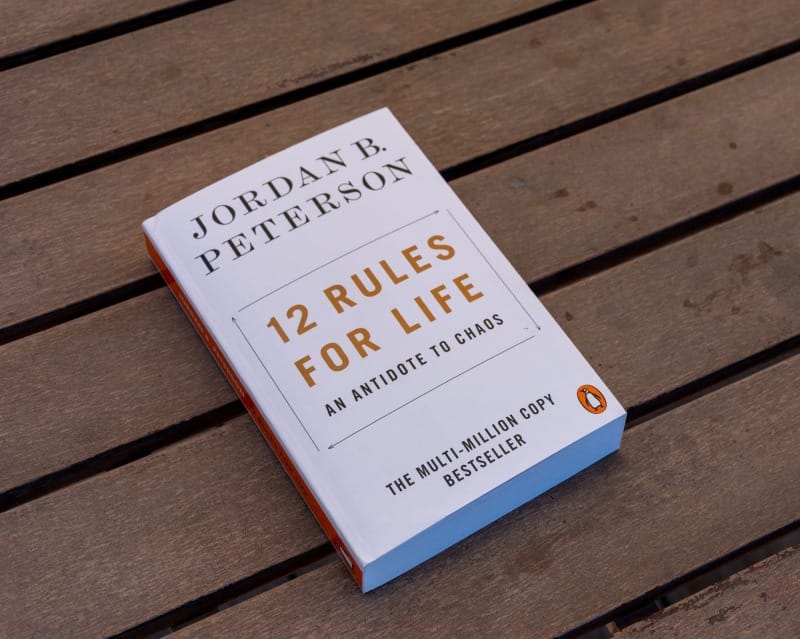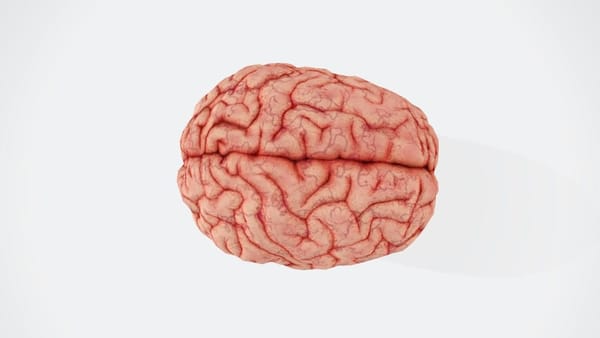As we age, maintaining cognitive function becomes increasingly important. Jordan Peterson, the renowned psychologist and author of "12 Rules for Life" and "Beyond Order", has some compelling insights on this topic. Drawing from his extensive research and clinical experience, Peterson emphasizes one key factor that could significantly impact our cognitive health as we grow older: exercise. While his books cover a wide range of life advice, this particular recommendation stands out for its potential to enhance our mental abilities and delay cognitive decline.
Key takeaways:
• Regular physical exercise is crucial for cognitive health
• Exercise acts as a powerful "nootropic" for the brain
• Physical activity can delay or prevent cognitive decline
• The brain's high energy demands make exercise particularly beneficial
The power of exercise for cognitive health
In a discussion with Dr. Peter Attia, Peterson highlights exercise as the most valuable tool for both cognitive and physical health. This might seem counterintuitive – after all, shouldn't mental exercises be the primary focus for brain health? However, the research strongly supports Peterson's stance.
Peterson's emphasis on exercise aligns with scientific research suggesting that physical activity is one of the most effective interventions for maintaining cognitive function in older adults. This recommendation goes beyond the typical advice found in his books, offering a practical and accessible way for individuals to invest in their long-term cognitive health.
Why exercise matters for your brain
The brain is an energy-demanding organ, consuming about 20-25% of our energy despite making up only 2% of our body weight. This high energy requirement makes the brain particularly susceptible to metabolic disruptions. Exercise helps maintain optimal brain metabolism, supporting cognitive function.
Beyond metabolism, exercise impacts the brain on multiple levels:
Improved blood flow: Physical activity increases blood flow to the brain, ensuring a steady supply of oxygen and nutrients crucial for optimal cognitive function.
Neurogenesis: Exercise promotes the growth of new neurons, particularly in the hippocampus, a region critical for memory and learning.
Enhanced neural connections: Regular physical activity strengthens the connections between existing neurons, improving overall brain function and plasticity.
Reduced inflammation: Exercise has anti-inflammatory effects, which can protect against age-related cognitive decline and neurodegenerative diseases.
These effects contribute to better cognitive performance and may help stave off age-related cognitive decline. The multifaceted impact of exercise on brain health underscores why Peterson considers it such a crucial factor in maintaining cognitive abilities as we age.
The cognitive benefits of staying active
Research has shown that physical exercise can improve various aspects of cognitive function, including:
• Attention and concentration
• Processing speed
• Executive function (including planning and decision-making)
• Memory (both short-term and long-term)
• Spatial awareness
A meta-analysis of 39 studies found that exercise interventions significantly improved cognitive function in adults over 50 years old. The benefits were observed across various cognitive domains, with the most substantial improvements in processing speed and executive function.
Interestingly, exercise has been found to be more effective than many other interventions, including dietary supplements and cognitive training programs, in maintaining and enhancing cognitive abilities. This finding supports Peterson's emphasis on physical activity as a primary tool for cognitive health.
Exercise as a "nootropic" for the brain
Peterson often refers to exercise as a powerful "nootropic" for the brain. Nootropics are substances or interventions that enhance cognitive function, and exercise certainly fits this description. The cognitive benefits of exercise are comparable to, and in many cases superior to, those of pharmaceutical cognitive enhancers.
Some of the ways exercise acts as a nootropic include:
Increased BDNF production: Physical activity stimulates the production of Brain-Derived Neurotrophic Factor (BDNF), a protein crucial for neuron growth and survival.
Enhanced neurotransmitter function: Exercise can improve the function of neurotransmitters like dopamine and serotonin, which play essential roles in mood, motivation, and cognitive performance.
Improved insulin sensitivity: Regular physical activity enhances insulin sensitivity, which is important for brain health, as insulin resistance has been linked to cognitive decline.
Stress reduction: Exercise is a powerful stress-reducer, and chronic stress has been shown to have negative effects on cognitive function.
Implementing Peterson's advice
To reap the cognitive benefits of exercise, consider incorporating a mix of aerobic activities and strength training into your routine. The key is consistency – aim for at least 150 minutes of moderate-intensity exercise per week, as recommended by health authorities.
Here are some practical tips to get started:
- Start small: If you're new to exercise, begin with short sessions and gradually increase duration and intensity.
- Find activities you enjoy: Whether it's walking, swimming, cycling, or dancing, choose exercises that you find enjoyable to increase adherence.
- Incorporate variety: Mix different types of exercise to challenge your body and brain in various ways.
- Make it social: Exercise with friends or join group classes to add a social component, which can provide additional cognitive benefits.
- Be consistent: Regular exercise is more beneficial than sporadic intense workouts. Aim for at least 30 minutes of moderate activity most days of the week.
- Combine physical and mental challenges: Activities like tennis or dance classes that require coordination and strategy can provide both physical and cognitive benefits.
Exercise and Peterson's broader philosophy
While Peterson's books "12 Rules for Life" and "Beyond Order" cover a wide range of topics, his emphasis on exercise as a tool for cognitive health aligns well with his overall philosophy. Peterson often stresses the importance of taking responsibility for one's life and making choices that lead to long-term well-being. Regular exercise embodies this principle, representing a commitment to one's physical and mental health.
Moreover, Peterson's focus on exercise as a cognitive enhancer reflects his belief in the interconnectedness of mind and body. This holistic approach to health and well-being is a recurring theme in his work, emphasizing that our physical actions can have profound effects on our mental state and cognitive abilities.
Conclusion:
Jordan Peterson's emphasis on exercise as a crucial factor in maintaining cognitive health is well-supported by scientific evidence. While his books "12 Rules for Life" and "Beyond Order" offer a wide range of life advice, this particular recommendation stands out for its potential to significantly impact our cognitive well-being as we age.
By making physical activity a regular part of our lives, we can potentially delay cognitive decline, enhance our mental abilities, and improve our overall quality of life. Peterson's advice serves as a reminder that taking care of our physical health is not just about maintaining our bodies – it's also about nurturing our minds and preserving our cognitive abilities for years to come.
As we navigate the challenges of aging, incorporating regular exercise into our routines may be one of the most powerful steps we can take to protect and enhance our cognitive health. It's a simple yet effective strategy that aligns with Peterson's philosophy of taking responsibility for our well-being and making choices that contribute to a meaningful and fulfilling life.
Want to learn more about optimizing your cognitive health and exploring other aspects of longevity science? Dive deeper into our articles at Sanatorium.health, where we continue to explore cutting-edge research and practical strategies for enhancing health and well-being throughout the lifespan.
Citations:
[1] https://www.linkedin.com/pulse/jordan-b-petersons-12-rules-life-controversial-guide
[4] https://www.amazon.com/Beyond-Order/dp/024140763X
[5] https://www.ncbi.nlm.nih.gov/books/NBK3885/
[7] https://www.youtube.com/watch?v=ZnU7pQTMU1k
[8] https://www.nia.nih.gov/health/brain-health/cognitive-health-and-older-adults












Member discussion